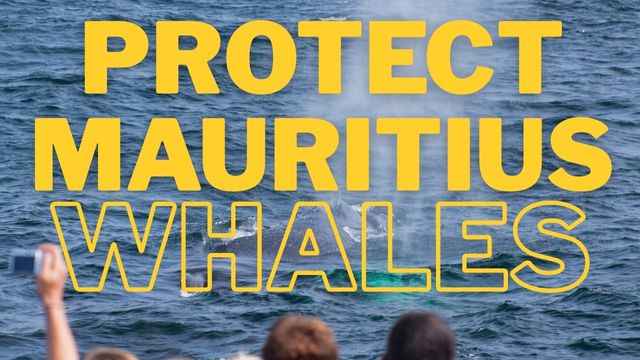The court case around Mauritius whales has moved from social media into the courtroom. Eco-Sud, a long-standing Mauritian NGO, has filed for an injunction to immediately halt “swim-with” outings involving whales, sperm whales, and sea turtles, naming 23 respondents and signalling a broader civil action to follow. The request was lodged on August 27 and made public on September 13, underscoring growing concern that close-contact tourism is stressing already vulnerable marine wildlife.
Why this case matters now
For years, operators and influencers have promoted dramatic in-water encounters with Mauritius whales. But Mauritius already prohibits swimming with large cetaceans, and authorities strengthened penalties in late 2023, reflecting a clear policy turn toward protecting marine mammals. Eco-Sud’s move seeks to translate those rules into real-world change on the water, not just guidance on paper.
At stake is the balance between a thriving marine-tourism economy and the long-term health of Mauritius whales. The NGO argues that repeated close approaches and entry into the water create cumulative disturbance, from boat strikes to disrupted feeding and social behaviour. Their legal filing aims to pause the activity and force a reset of standards before the busy season returns.
The law and the enforcement backdrop
Mauritius replaced its earlier framework with the Fisheries Act 2023, which empowered regulators to modernise rules around marine resources and protected wildlife. In practice, enforcement has begun to tighten: in June 2025, authorities issued more than 30 fines and seized boats in the North linked to illegal swimming with whales and dolphins, signalling that the clampdown is not merely symbolic. For operators, the Eco-Sud case is an inflection point that could define what “responsible” looks like for years ahead.
What we know about Mauritius whales
Local and international scientists have spent more than a decade documenting and photo-identifying sperm whales off Mauritius. The Marine Megafauna Conservation Organisation (MMCO) runs long-term work to track family groups, births and social bonds, knowledge that is crucial for understanding how repeated disturbance can add up over time. While global estimates suggest slow recovery since the whaling ban, small resident communities like Mauritius whales remain sensitive to pressure.
What Eco-Sud is asking for
According to the case summary, Eco-Sud wants an immediate suspension of “swim-with” offers targeting Mauritius whales and other protected species, pending a full hearing. The NGO argues that social-media-driven boat clustering and frequent water entries have normalised illegal practices, making ad hoc enforcement insufficient. The civil action they plan to pursue would test liability for alleged ecological harm linked to this business model.
What this could mean for visitors
If you are planning to see Mauritius whales in the coming months, expect stricter scrutiny on the water and clearer separation between lawful whale watching and illegal in-water encounters. Responsible tours will emphasise viewing from a respectful distance, limiting boat numbers and approach behaviour, and leaving animals to set the terms of any encounter. That experience can still be unforgettable. The difference is that it centres the welfare of Mauritius whales first.
What this could mean for operators
For reputable businesses, the case is a chance to differentiate. Clear pre-briefings, transparent wildlife codes, and decisive refusals to allow swimming near Mauritius whales will likely become the baseline. Operators should audit marketing, remove any “swim-with whales” phrasing, and align staff training, boat handling and client expectations with the protective stance the authorities have signalled. The enforcement actions seen mid-2025 suggest that penalties are real and rising.
A quick reality check on social media
Much of the demand for up-close content around Mauritius whales is born on Instagram and TikTok. That is precisely why the issue has escalated: one striking clip can encourage dozens of copy-cats the next day. Eco-Sud’s legal strategy acknowledges that the fight is cultural as much as legal, and success will depend on turning public appetite toward ethical whale watching rather than the next viral jump-in video.
How to choose a responsible tour
If you want to support Mauritius whales while still enjoying the ocean, look for operators who:
- State clearly that they do not offer swimming with whales or sperm whales.
- Cap the number of boats and time spent near a pod, especially if a calf is present.
- Prioritise slow, predictable manoeuvres and avoid encircling animals.
- Build the day around natural history, not just a close-up photo.
These are not just niceties. They are the field practices that keep stress low for Mauritius whales and help ensure that encounters remain possible for years to come.
What happens next
Procedurally, the injunction request will be considered by the court, with wider civil claims expected to follow. Regardless of the timeline, the trajectory is clear: the policy environment has hardened against in-water cetacean encounters, and public tolerance for risky practices is ebbing. For the sake of Mauritius whales, that shift is overdue. The island’s marine wildlife is one of the treasures that travellers come to see; safeguarding it is in everyone’s interest, from families booking a day out to skippers who depend on healthy seas.
This is a pivotal moment for Mauritius whales. Eco-Sud’s legal action puts the welfare of these animals at the centre of the tourism conversation and challenges the industry to evolve. Visitors can still witness majestic behaviours at the surface, hear that unmistakable exhale and feel the privilege of sharing the ocean. The difference is that the best memories will come from encounters that leave Mauritius whales exactly as we found them: wild, unbothered and free.



